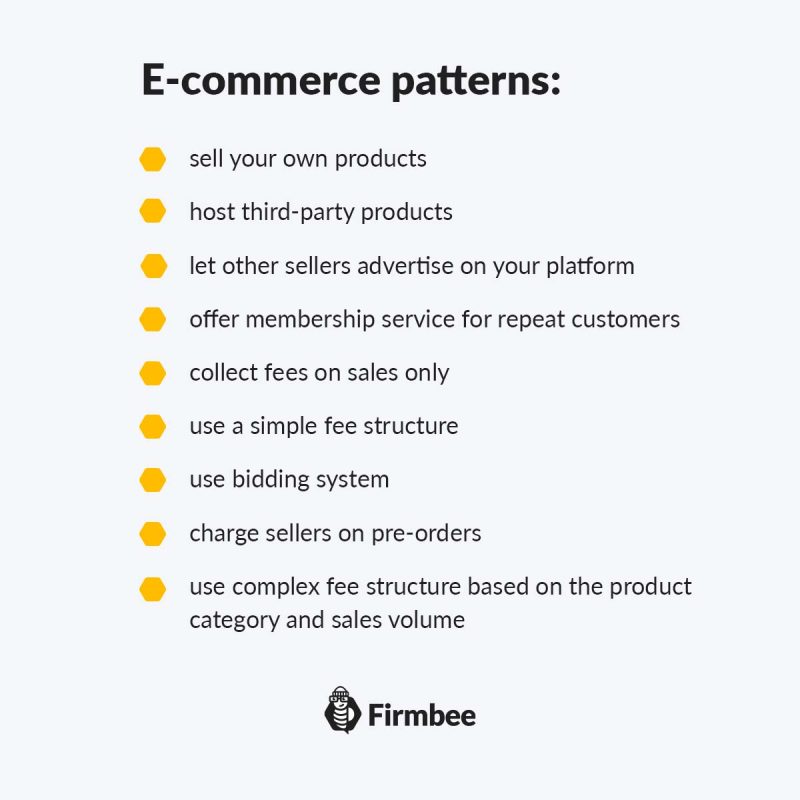Saas vs open source e-commerce platforms – what are the differences? The development of e-commerce has forced many entrepreneurs to expand their activity to online stores. Fortunately, there are many platforms on the market that facilitate the accomplishment of this task. The saas and open source e-commerce platforms are popular solutions that are worth to be discussed.
Saas vs open source e-commerce platforms – table of contents:
- Saas vs open source e-commerce platforms
- Saas platforms benefits
- How to select the right Saas platform?
- Advantages and disadvantages of Saas platforms
- Open source platforms
- Who can benefit from open source platforms?
- Advantages and disadvantages of open source platforms
- Summary
Saas vs open source e-commerce platforms
Saas vs open source – which type of platform should you select for your e-commerce? Do you know what is Saas platform? A subscription platform, that offers software as a service, is a solution that helps to create online stores that operate with a monthly or yearly subscription. Such platforms do not require installation on the server of the company, because they are kept in the cloud. For this reason, the seller of the product will never become an owner of the shop.
Saas platforms benefits
Saas platforms are the best for individuals that start their journey in the world of e-commerce. Those platforms do not require any professional, technical knowledge. The seller, after the payment of the subscription, gets access to functionalities and templates that are sufficient to run the online store.
Saas platforms are a good solution for individuals that wish to focus on their business activity and want to leave all technical and security issues to the specialized service providers. Among popular Saas platforms are Shopify, BigCommerce, Wix, and Volusion.
How to select the right Saas platform?
Each seller has different expectations, hence the easiest way to choose is to analyze the price lists that are available on the websites of the given platforms. They will differ by price and functionalities. It is worth using trial periods that are available frequently on the websites to familiarize oneself with the platform and its options.
The quality of the service that is offered by different platforms can be significant as well. It can be tested without any special efforts, just by sending an email to the representatives. This is the method to find out how quickly the platform can react to the questions and problems of its clients.

Advantages and disadvantages of Saas platforms
There are several advantages of Saas platforms and those are: low price at the beginning, novelties are being implemented immediately, technical support and all technicalities have to be dealt with by the owner of the platform, and online stores are ready to use at once, plenty of ready-made templates, integrations included in the price of the subscription, free trials.
Apart from advantages, there are disadvantages of the Saas platforms as well. The most visible cons are as follows: the seller does not own the shop, the seller has to pay the subscription regularly, a seller cannot modify the look of the shop, the amount of products in the shop is limited, development of the store is restricted by the cost of more expensive packages, capacity is adjusted to needs of smaller stores.
Open source platforms
Open source offers free online store software. Those platforms are based on open source code which means that it is easy to modify the store accordingly to own preferences and needs. To use the full potential of Open source platforms the additional costs have to be taken into account since there are some technical requirements.
Who can benefit from open source platforms?
The open source solutions are best for sellers that wish to be able to adjust the functions of the shop to their own needs. All types of stores that wish to develop and expand their opportunities.
Sellers that use open source platforms have to possess technical knowledge or have the financial means to pay for the professional technical service. The most popular open source platforms include WooCommerce, Magento, PrestaShop, OsCommerce, Shopware, Sylius, VirtueMart, and OpenCart.

Advantages and disadvantages of open source platforms
There are several advantages of open source platforms: price – the access is usually free, development opportunity and flexibility – modifications are possible, additions – to facilitate store management, look of the store – ready-made templates and designs, community – specialists and enthusiasts eager to help in trouble.
Apart from advantages, there are disadvantages of the open source platforms as well. The most visible cons are as follows: cost of the domain and host, lack of technical support – it is not guaranteed by the platform, upgrades are not automatic and have to be dealt with individually, additions are costly and not always compatible, technical knowledge or means for the professional help is required.
Summary
The dilemma of online store owners is visible here – Saas vs open source – should you go for SaaS solutions or pick up an open source platform? The choice is not easy but careful consideration should help the store owner to select the option that is best for his business.
Read also: Global leadership trends in business for 2022 and 2023
If you like our content, join our busy bees community on Facebook, Twitter, LinkedIn, Instagram, YouTube, Pinterest.
Author: Andy Nichols
A problem solver with 5 different degrees and endless reserves of motivation. This makes him a perfect Business Owner & Manager. When searching for employees and partners, openness and curiosity of the world are qualities he values the most.


















